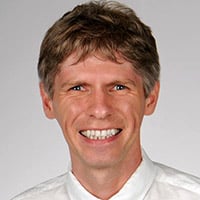When we think about alcohol use disorder, one of the key medical issues that comes to mind is liver damage, but perhaps one of the most under discussed and dangerous consequences is Wernicke-Korsakoff syndrome. Talk about what it is and why it should be a concern of anyone who is or has a loved one battling AUD.
Wernicke-Korsakoff syndrome (WKS) is a rare memory disorder that occurs due to a lack of thiamine (vitamin B1) and malnutrition. Thiamine is essential for converting sugar into energy; without it, the brain doesn’t have enough energy to function properly. The most common underlying cause of WKS is AUD. Chronic heavy alcohol use irritates the stomach and digestive tract and interferes with the body’s ability to absorb vitamins. People who drink heavily also often have poor nutrition and don’t ingest enough thiamine. Other causes of WKS include eating disorders, prolonged vomiting due to other medical conditions and side effects of chemotherapy.
What are some of the symptoms of wet brain that families and medical providers should look for?
WKS is a combination of two different brain diseases: Wernicke encephalopathy and Korsakoff psychosis. Patients typically, but not always, progress from Wernicke encephalopathy to Korsakoff psychosis. Common symptoms of Wernicke encephalopathy include balance problems, ataxia (loss of muscle coordination), trouble walking, confusion, drowsiness, hypothermia, tachycardia (rapid heartbeat), low blood pressure and abnormal back-and-forth eye movements.
If left untreated, Wernicke encephalopathy progresses to Korsakoff psychosis. Common symptoms include amnesia (inability to form new memories), confabulation (inventing information to compensate for the inability to remember it), agitation and anger, disorientation and visual and auditory hallucinations.
Many of these symptoms represent damage to parts of the brain including the mammillary bodies, hippocampus, thalamus, hypothalamus, and cerebellum, which are involved in memory, motor coordination and regulation of autonomic bodily functions.
Talk briefly about the treatment and progression of the disorder.
Wernicke said encephalopathy can be treated with thiamine tablets or injections, IV fluids and nutritional support. It is critical that thiamine replacement is initiated before nutritional replenishment. Patients should also be treated for their underlying AUD so that they can initiate and maintain abstinence from alcohol. Treatment can prevent progression to Korsakoff psychosis, which is not reversible or treatable.
Since many of the symptoms involved mimic being drunk, how can loved ones know when to be concerned, and what should they do if they believe a family member may be suffering from it?
WKS symptoms can be similar to both acute alcohol intoxication and alcohol withdrawal. Family members and friends should particularly watch for these kinds of symptoms persisting even when they know the person is not acutely intoxicated, especially if the person has not had anything to drink for several days.
What’s the best way to approach loved ones who might be suffering from wet brain but may not realize it, especially if they have AUD, which can already present an unpredictable and uncomfortable situation?
WKS is challenging because patients who have it often lack insight into their condition. If possible, a treatment provider familiar with severe AUD and WKS should be involved in communicating with the patient and their loved ones.
Many medical providers miss wet brain symptoms, especially in those who are younger (50s, 40s, even 30s). Since it can develop at any age, what’s the best way to broach the topic with your doctor if you think you or someone you love is showing signs of it?
Unfortunately, many people with AUD do not disclose the full extent of their alcohol use to their primary care providers. Being honest with your doctor about how much you are drinking will help them understand that alcohol may be the cause of WKS symptoms. These symptoms are sometimes mistaken for early-onset dementia in younger people.
Can patients recover from wet brain?
If caught and treated early, many symptoms of Wernicke encephalopathy are reversible. If patients progress to Korsakoff psychosis, it is more challenging to reverse symptoms, particularly memory impairment.
The obvious solution to prevent wet brain would be to stop drinking completely. Realistically, what are some steps people can take to minimize their chances of developing it?
Even if complete abstinence is not achievable, reducing the amount one drinks will reduce the chance of developing WKS, as well as the likelihood of many other alcohol-associated health problems.



.png)
.jpg)
